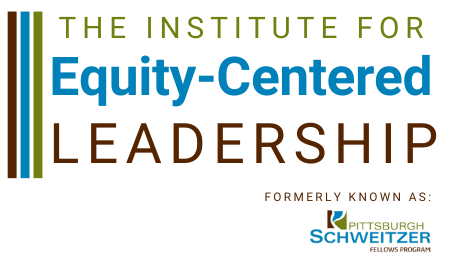“Environmental health addresses all the physical, chemical, and biological factors external to a person, and all the related factors impacting behaviors. It encompasses the assessment and control of those environmental factors that can potentially affect health. It is targeted towards preventing disease and creating health-supportive environments.”
— World Health Organization
At the Pittsburgh Schweitzer Fellows Program (PSFP), we like to think about the environment “with a little e.” What that means to us is that the environment is everywhere, and there are lessons to be learned on every street corner, in our homes, in the air we breathe, the clothes we wear and the food we eat, in addition to places people might traditionally think of as natural like parks or the woods. For many people, asking them to describe “the environment” conjures idyllic images of trees, mountains, wildlife, or even more exotic desert or jungle landscapes. Yet, our immediate surroundings also constitute our environment, and the environments we interact with on a daily basis have a profound influence on our health. As the WHO quote above states, environmental health addresses all the factors external to a person.
PSFP began its Environmental Fellows Program in 2011 – 2012 to address the environmental determinants of health of underserved populations living in environmentally at-risk communities. Unfortunately, due to Southwestern Pennsylvania’s industrial legacy, topography, aging infrastructure, and other factors, much of our region is environmentally at-risk. Each year, PSFP selects 8-10 Environmental Fellows who implemented projects of their own design in underserved communities or with underserved populations to improve their health and to increase awareness about the environment in our everyday lives and how actions that improve our health are also able to help the environment. Past Schweitzer Environmental Fellows have implemented projects that addressed such health and environmental issues as nutrition, asthma, diabetes, chemicals, and exercise which shows that the quality of our health and our environments are inextricably linked.
It is important to recognize that the environment is not just birds and trees because understanding the connection between environment and health challenges the notions of silo learning – environmental issues are health issues, and vice versa, and the complex problems stemming from our unhealthy relationship with our environments will take interdisciplinary solutions. Environmental Fellows are at the forefront of meeting this challenge, as this excerpt from one Fellow’s final report shows:
“One session that we really enjoyed was when one girl talked about the dangers of eating too much sugary foods. I really appreciated how she combined multiple lessons (diabetes health effects and how food deserts lead to easier access to unhealthy foods) in her summary. It made me feel as though we were making progress by her realization that many of these topics are interrelated and how they can work in tandem to make it harder for residents of the Hill District to be healthy.”
— Simon, Class of 2015 – 2016
A typical person might not think of eating sugary food as an environmental issue, yet the resources spent creating, processing, and transporting junk food can be as bad for the environment as too much sugar is for our health. It takes access, resources, and knowledge to make better decisions about what we eat, but realizing that the environment is everywhere can close the gap in knowledge and lead to asking the right questions about improve access and resources. While there are daunting challenges ahead, we all have the power to make healthy decisions. If we want to take care of the planet, we also have to take care of ourselves.


































